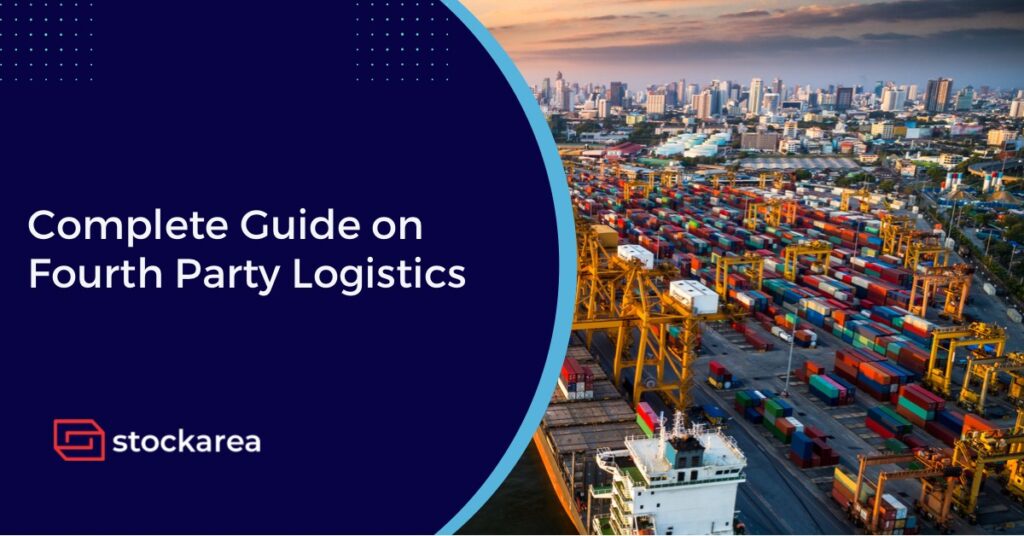Fourth-party logistics (4PL) is the function of integrating, curating, evaluating, and managing the resources, procedures, and technology necessary by a business to manage its supply chain activities. 4PLs employ managerial-driven logistics ideas to design, execute, and monitor their clients’ supply chains.
How does 4PL work?
Fourth party logistics (4PL) solutions entail contracting out all logistical tasks and supply chain management to a logistics business. 4PL firms behave more like trusted consultants, providing a complete picture of the supply chain at all times. This enables 4PL firms to deliver information, recommendations, and strategic value-added services depending on your company’s objectives.
A 4PL company can offer the following services:
- Kitting, Bundling, Packaging and Dropshipping
- Logistics Strategy
- Sourcing/Fulfillment of Freight Strategy
- Inventory Planning & Management Support
- Management of Inbound, Outbound, and Reverse Logistics
Benefits of 4PL
There are numerous reasons to employ a 4PL, and the associated benefits are even larger. Any 4PL provider will examine every area of your supply chain or supplier network and assist you in managing the new processes
1. End-to-end Solution
Fourth Party Logistics provides end-to-end expertise in warehousing, distribution, freight management, information technology, and handles each component when building the best fit solutions. When businesses approach independent suppliers directly for their services and infrastructure requirements, they frequently find themselves acquiring products that the vendors are eager to sell them, which may not be the optimum choice. Thus, the primary benefit that a company can obtain from a 4PL service provider is a solution-based approach, as opposed to a pre-built product that is adapted for their business model.
2. Resource Management
One of the most significant pain factors for most businesses is managing several providers for the same or distinct set of operations. 4PL service providers seek to resolve this issue by managing the client’s entire ecosystem of vendors and supply chain processes. As 4PL service providers are involved from the vendor evaluation and onboarding stages, they ensure that the appropriate systems, procedures, and KPIs are implemented to ensure the smooth running of the operations. This enables businesses to concentrate on their core competencies.
3. Data analytics
4PL service provider is in charge of giving clients analytics and strategy reports so that the company can grow for the long term and meet short-term goals. They are in charge of coming up with and putting into action the strategies that will meet the needs of the client. Fourth Party Logistics can give complete data, warnings, and insights to assist the customer in making faster and more informed decisions, ultimately gaining considerable competitive advantage.
4PL vs 3PL
Often firms separate their supply chain activities into 3PL and 4PL in order to improve their supply chain operations. While both methods have distinct advantages, the optimal logistics solution is determined by a variety of factors, including the size of the firm, its infrastructure, its existing business strategy, and its budget.
| 4PL | 3PL |
|---|---|
| 4PL logistics is a better fit for medium to large-sized businesses. | Third-party logistics is better suited for small to medium-sized organizations |
| 4PL providers focus on strategic supply chain optimization and integration. | 3PL providers specialize in daily logistics, warehousing, and transportation activities. |
| 4PL providers can hire, manage, and coordinate the actions of three-party logistics providers. | 3PL providers have no influence over the activities, services, or procedures of their counterparts. |
| 4PL logistics companies serve as the client's single point of contact for the complete supply chain activity. | Using 3PL businesses must manage certain internal logistical operations, such as audits and optimizations. |
Bottom Line
4PL conduct an analysis of existing processes, from order placement to fulfillment, and examine mode selection, parcel carriers, and existing cost structures, before developing a tailored solution to meet your specific needs. It will give your logistics a new level. If your business becomes too complex for your in-house team to manage, deploying 4PL is one of the best investments you can make.
Related posts
- Top 10 Advantages Of Demand Forecasting
- 4 Major Benefits Of Blockchain In Supply Chain
- A Complete Guide On Value Chain And Its Components
- Logistics Market In India
- 5 Key Differences Between Supply Chain Management & Logistics
- Only Technology Can Solve the Industrial Supply Chain Crisis
- Just-in-Time (JIT) Inventory Management
- Top 10 Transport Companies In India
- Top 10 Shipping Companies In Mumbai
- 10 Practical Tips To Reduce Warehouse Costs
- The Ultimate Guide To Supply Chain Risk Management
- Guide To 3PL In Reverse Logistics
- 7 Key Functions Of Logistics Company
